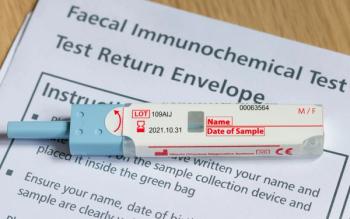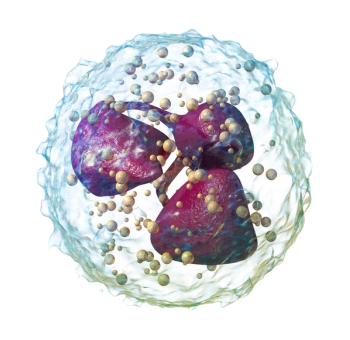
Clinical
Latest News
Latest Videos

CME Content
More News

Higher Life’s Essential 8 (LE8) scores, especially those reflecting lower nicotine exposure and better sleep health, are inversely associated with chronic obstructive pulmonary disease (COPD) risk, emphasizing the importance of cardiovascular health (CVH) in disease prevention.


This recent study highlights key risk factors for rheumatoid arthritis–associated interstitial lung disease (RA-ILD), emphasizing the importance of early screening to improve diagnosis and patient outcomes.

Patients with chronic liver disease who were unable to establish care were 85% more likely to require recurrent hospitalizations. This group included a disproportionate number of women and individuals with physical limitations affecting their health.

Professional guidelines say that when pulmonary arterial hypertension (PAH) is diagnosed, right heart catheterization should be performed, but a quarter of the time, it isn’t—so investigators set out to discover why.

The key secondary end point of overall survival (OS) was met in the DREAMM-7 trial of belantamab mafodotin (Blenrep; GSK) for the treatment of patients with relapsed/refractory multiple myeloma (R/R MM).

Influenza antiviral treatment remains underutilized among eligible children and adolescents, particularly in outpatient settings, despite CDC recommendations.

A trio of abstracts presented at ACR Convergence 2024, the annual meeting of the American College of Rheumatology, bear out the benefits of bimekizumab (Bimzelx; UCB Pharma) for use against active psoriatic arthritis (PsA).

Lowering the positivity threshold for a high-quality fecal immunochemical test (FIT) can increase sensitivity of noninvasive screening for colorectal cancer in a more economical way.

The new report from US Surgeon General Vivek H. Murthy, MD, MBA, highlights persistent disparities in tobacco use and secondhand smoke exposure, calling for equitable strategies to achieve a tobacco-free future.

Investigators say they may have found a new therapeutic target for patients with double-expressor diffuse large B-cell lymphoma (DLBCL).

The FDA approved the FoundationOne Liquid CDx to identify patients with metastatic non–small cell lung cancer (mNSCLC) with MET exon 14 skipping alterations who may be eligible for tepotinib (Tepmetko; EMD Serono).

An update from the PURPOSE 2 trial focused on adherence and pharmacokinetics data for lenacapavir, used to prevent HIV.

The SARAH trial was limited to high-risk patients, which the lead investigator said prevented unnecessary exposure to adverse events in patients less at risk of cardiomyopathy.

Revumenib has been approved for relapsed or refractory acute leukemia with KMT2A translocation in patients aged 1 year and older.

The combination therapy of bictegravir/emtricitabine/tenofovir (BIC/FTC/TAF) was both tolerable and produced virologic suppression in patients who were presenting late in their HIV infection.

A new risk score model for hepatocellular carcinoma using standard clinical data can better identify individuals at risk better than the current standard risk models.

The key driver in both sets of findings is the relationship between neutrophils and inflammation.

Researchers found significant differences in ovarian cancer survival among Asian American subgroups, emphasizing the importance of analyzing these groups separately.

Chronic obstructive pulmonary disease (COPD) burden remains high in underdeveloped regions of China despite a decline in related deaths, highlighting the need for targeted management and prevention strategies.

The prevalence of liver steatosis was higher in people living with HIV compared with liver fibrosis, although both liver conditions are prevalent for these individuals.

In this study, investigators were seeking to uncover potential genetic correlations between hidradenitis suppurativa and downstream risk of cardiometabolic disease, such as coronary artery disease (CAD) and diabetes, in older adults.

The chimeric antigen receptor T-cell therapy obecabtagene autoleucel received approval to treat patients with relapsed or refractory (R/R) B-cell acute lymphoblastic leukemia.

Amit Saxena, MD, discusses how personalized treatment decisions for lupus nephritis require careful consideration of patient characteristics, multidisciplinary coordination, and emerging guidelines, while acknowledging both the opportunities and challenges that lie ahead in clinical practice.

Amit Saxena, MD, discusses how evidence-based guidelines from ACR and KDIGO have evolved to shape lupus nephritis treatment approaches, emphasizing their critical role in standardizing patient care and incorporating recent advances like new therapeutic options and refined diagnostic criteria.
















